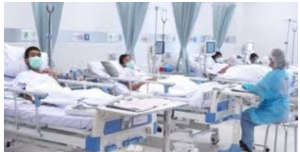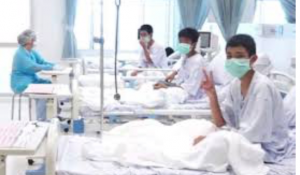PERTH, WESTERN AUSTRALIA —
Dr Keith WOOLLARD did not have enough experience to perform a complex angioplasty, a tribunal has been told.
The former Australian Medical Association (AMA) president has been found guilty of professional misconduct for making false claims about his training experience so he could be accredited to perform angioplasties.
In 2005, Dr Keith WOOLLARD told the medical advisory committee at Perth’s Mount Hospital he should be accredited because he had reached the training requirements of at least 200 supervised angioplasties, all logged.
Two months after being granted accreditation, he was asked to provide documentation, but the logbook Dr WOOLLARD sent only listed 154 angioplasties.
Dr WOOLLARD claimed he had assisted with angioplasties on more than 100 patients in the 1980s, supervised by Dr Geoffrey Cope, and therefore his experience “greatly exceeded” the requirements.
But at a hearing of the WA State Administrative Tribunal this year, Dr Cope said he had never performed any angioplasties with Dr Woollard’s assistance.
“If Dr Woollard scrubbed up and attended any cases performed by me, he certainly did not participate in them,” Dr Cope, who retired 10 years ago, said.
He claimed Dr WOOLLARD asked about training with him, but was rejected as being “far too fast, far too aggressive and potentially dangerous”.
Between receiving accreditation and filing his logbook, Dr WOOLLARD performed an angioplasty on journalist John Brown.
During the procedure, Mr Brown’s left main coronary artery was occluded. Dr WOOLLARD said he assumed it was due to a dissection of the artery by either the guide wire or the guide catheter.
Despite the intervention of another cardiologist and later a cardiac surgeon, Mr Brown died from complications.
The WA tribunal said Dr WOOLLARD did not have the experience to operate on Mr Brown, had failed to explain the risks associated with the angioplasty to Mr Brown, and had not told him of the option of referral for coronary artery bypass grafting instead.
In his defence, Dr WOOLLARD said the lesion in Mr Brown’s left anterior descending artery was not complex.
However, three expert witnesses said the lesion was complex, being angulated, calcified, ulcerated and larger than 20mm in length, with an irregular contour.
“By reason of the complexity of the lesion, Dr Woollard should have referred Mr Brown to a cardiothoracic surgeon,” the tribunal said.
“At an absolute minimum, Dr Woollard should have given Mr Brown a realistic assessment of risks and benefits, and alternatives.”
In findings handed down this month, the tribunal said that Dr WOOLLARD knew he made false statements when he applied for accreditation.
“In proceeding with Mr Brown’s angioplasty, Dr Woollard demonstrated an unjustified self-confidence that went beyond a clinical error and constituted arrogance,” it added.
Sanctions will be decided at another hearing.
SOURCE: Medical Observer, article by Antony Scholefield.




